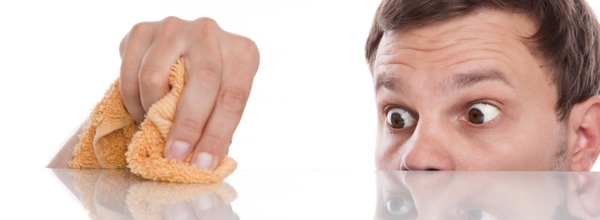
It's too common that we check
whether our house is locked or not before we go out. But if you get affected by
repeated obsessions and compulsions, then it is called "OBSESSIVE
COMPULSIVE SYNDROME" (OCD). Obsessive compulsive syndrome is an anxiety
disorder characterized by uncontrollable thoughts and repetitive behaviors. It
affects 1-2% of the population.
Most people with obsessive-compulsive disorder (OCD) fall into one of the following categories:
Most people with obsessive-compulsive disorder (OCD) fall into one of the following categories:
- Checking: People who repeatedly check things to prevent from harm or danger. for example door locked,stove turned off etc..
- Hoarding: People who feel unable to throw things away instead they are not using it.
- Contamination :People who are afraid of Contamination. (Usually Hand Washing and cleaning)
SYMPTOMS IN OCD:
Compulsive things:
- Compulsive hand washing and
cleaning more times.
- Compulsive checking of things
2,3,4 times and so on.
- Compulsion in keeping
unnecessary things.
- Compulsive reading more times
Obsessions thoughts:
- Obsessive fear of being
contaminated by germs
- Obsessive fear of being harm
- Obsessive fear of losing things
you might need
- Excessive focus on things which
are lucky or unlucky.
PREVENTION:
Unfortunately,
there is no way to prevent from Obsessive-compulsive disorder. But it can be
treated if detected early.
TREATMENT:
Psychotherapy
is an effective treatment for people who get affected from
OCD. ERP (Exposure and Response Prevention) is one of the
categories in Psychotherapy. exposing
the OCD patient to a feared object or obsession and make them learn some
healthy ways to handle their anxiety. It seems to be disliked by most of the
people. But, really it takes effort to make people cope up with their
compulsions and obsessions. Once people learn to handle their obsessions and
compulsions, they can enjoy their life.







No comments:
Post a Comment